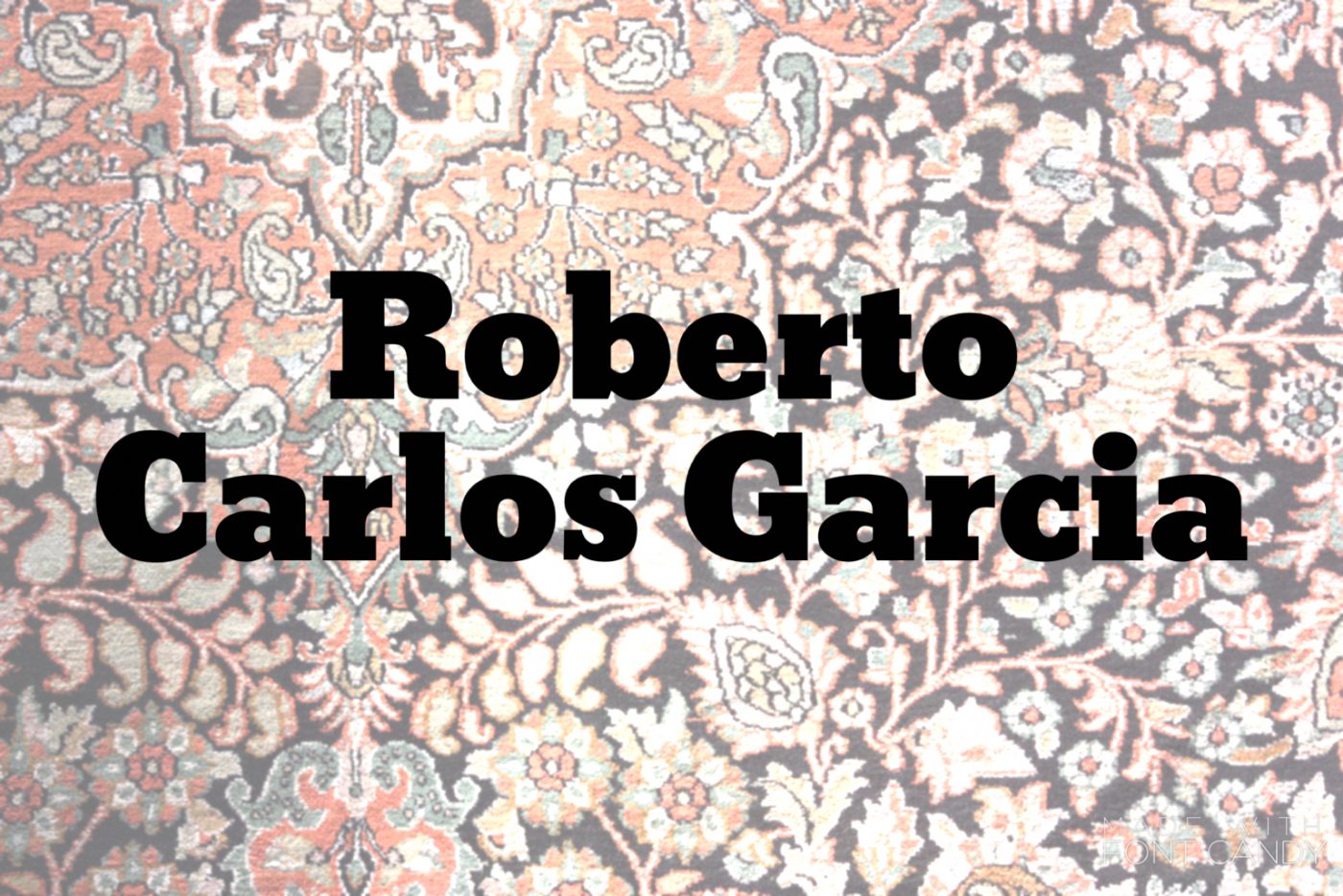
Roberto and I met the old-fashioned way writers meet, through our work. I had just come out of a self-imposed, post-MFA, two-year incubation period. As a way to jump-start my writing, I joined an online community for writers called Fictionaut, and began posting a series of flash fiction on that site. My little stories received a modest amount of attention, but, more importantly, there were a handful of generous writers and poets who reached out to me and gave me invaluable advice on my work. Roberto Carlos Garcia was one of the first poets I met on the site to offer me encouragement. What impresses me most about Roberto’s work is the quiet strength of his words and how he’s not afraid to get political or take a stance.
A native New Yorker, Roberto now lives and works in New Jersey where he is pursuing an MFA in Poetry and Poetry Translation at Drew University. Roberto’s work has appeared in Connotation Press- An Online Artifact, Wilderness House Literary Review, Poets & Artists Magazine, Metazen, Atticus Review, and other publications. His fiction is included in the anthology The Lost Children, a book of 30 short stories to benefit children’s charities PROTECT and Children 1st U.K. His chapbook, Amores Gitanos (gypsy loves), was published in 2013 by Červená Barva Press.
You can follow Roberto Carlos Garcia on Twitter at @thespokenmind. His website is www.robertocarlosgarcia.tumblr.com.
Was language an important part of your childhood?
GARCIA
I believe it was. At home my grandmother only spoke Spanish and because her eyesight was bad she made me read her magazines to her; magazines like Latin Vogue and Cosmopolitan. I was also the house translator. My mother on the other hand never gave me the definition of a word. She always made me look it up in the dictionary. She had a small library of classics that I would read and reread. We’d talk about the Jersey accent as opposed to the New York accent, and I was criticized at school when I was a kid for my New York accent, so I was very conscious of language. Also, ours was a house of storytellers. Language and good conduct were big in my childhood.
For a poet, these are good lessons to learn early on: the power of language, bilingualism, and discipline. Did anyone ever discourage you from writing poetry?
GARCIA
Nobody said “Don’t be a poet!” but they discouraged in other ways. Especially when people found out I was working on an MFA in Poetry. They’d ask, “What can you do with that?” Or “How much can you make as a poet?” I suppose we’re a different kind of animal. Poets, writers and artists are more concerned with the journey our talents take us on then the money it will bring us. At least money is not the primary motivation for me. It’s on my list for sure but down the line. I’m more interested in changing the world.
Let’s talk about Amores Gitano (gypsy loves), your first chapbook published earlier this year by Červená Barva Press. In these twenty poems we encounter the voice of a male protagonist in lust with a woman, but to a greater extent, these poems explore the paradox of desire. By this I mean, we witness a man acting on his desire for escape then realizing he does not want to commit to the escape. What inspired you to write this series of poems?
GARCIA
I was inspired by that push and pull of desiring. Whether the object of that desire is a woman or the desire to do some thing can be up to the reader. The real tug of war is about art and the madness behind it. How that relationship is like a torrid love affair between the artist and the Muse. Our relationships to painting, writing, sculpting or photography is like being in a relationship. These acts require time, passion and even our lust. There are little clues to that relationship throughout the chapbook. I first put these poems together for an erotica themed poetry reading. They were a hit and so I kept working on them and here we are.
It’s interesting you reference “the artist and the Muse,” you are a poet and a translator. How is the relationship between “the artist and the Muse” the same or different when you are working on a translation?
GARCIA
It’s so deceptive. You can’t just let the Muse take you away because the work is not yours. You have to remain true to what the poem in the original language is saying with the same words the poem is using to say it. At the same time it needs to make sense in English and be relevant. It’s an amazing challenge and almost impossible to do. Of course that’s why I do it. I believe the Muse is working in my favor when I can feel the voice of the poet I’m translating lead me along. It’s hard to explain but I wish every writer would try translation at least for a little while. Translating makes you look at your own work very differently. You begin to ask, “How would this come across in another language?”
I imagine there’s also a temptation to bring forth something about the original poem in a way that the poet may not have intended. So many brilliant translators are overlooked, yet they are responsible for improving on the original work. Ideally, if there’s an improvement made to the original, it is unintentional, and a result of diligence not ego. Translators have the advantage (and possible curse) of hindsight after all. So what are you working on and what’s your dream project?
GARCIA
I’m wrapping up my final semester at Drew University’s Low Residency MFA Program. Working on a manuscript of Pablo Neruda translations as my final project. I also have my manuscript out at some contests right now looking for a publisher. I would say my dream project would be to finally start working on my novel. It’s been stewing in my brain for a while and I really want to make it my focus. Soon, soon.
Thank you, Roberto!




2 responses to “Roberto Carlos Garcia – Conversation No. 2”
GREAT choice for an interview. I think the last thing I read of Roberto’s not only had me leaving a note at Fictionaut, but writing him an eMail as well… if that’s not the case, I should have. And yes it takes very little translation, very little familiarity with another language to understand what some of the issues and rewards of translation are.
Wonderful, wonderful interview. Congratulations!